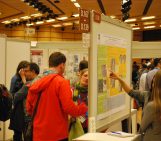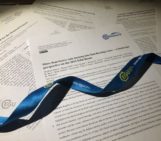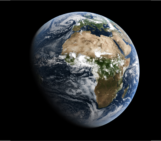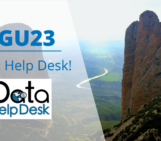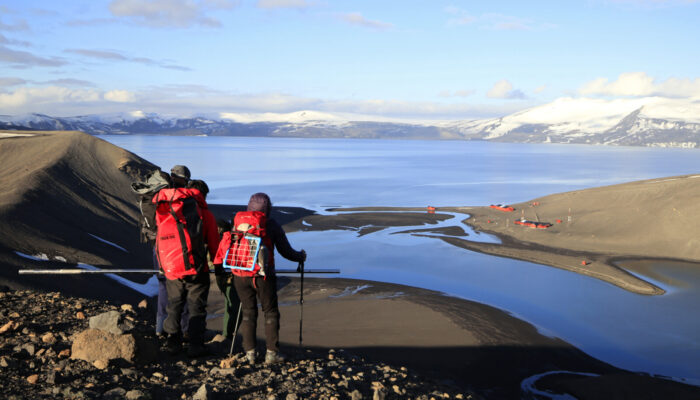
For the first time, EGU organized a Peer Review Training in September and October this year. It was attended by 50 participants, most of whom were early career scientists with little to no background in the peer review process. The training comprised three online sessions and an at-home exercise of reviewing real manuscripts. And of course, with feedback being key in such trainings, all participants received individual feedback from the training facilitator and the EGU editors.
So how did this training benefit participants? EGU Media Officer Gillian D’Souza and EGU Editorial Manager Eduardo Queiroz Alves sat down with Kifle Zeleke Aregahegn to hear his experiences and takeaways from the training. Read on for excerpts from the discussion:
Hi Kifle! Can you share your overall experience with the EGU Peer Review Training? Did it meet most of your expectations?
Yes, the EGU peer review training met most of my expectations. I wanted to learn what to do as a peer reviewer, as well as how peer reviewers and authors interact over scientific manuscripts. This kind of training helps build understanding between peer reviewers and the authors. Apart from the importance and responsibilities of peer reviewers, the training helped me understand how to prepare a peer review report and the ethical considerations that need to be considered while writing these reports.
How did the interactive nature of the training enhance your learning compared to other training methods you may have experienced?
The practical approach of the training certainly made it different from other methods. After an informative introduction, we were assigned to peer review a manuscript submitted to Atmospheric Chemistry and Physics (ACP).
In most cases for a training such as this, the introduction is assumed to be good enough to perform peer review. However, the EGU peer review training I had was far more than that!
I received two rounds of feedback from senior reviewers and editors, directly about my method of review and from an overall broader perspective. This helped me better understand the process of manuscript review. I think every publisher should have such initiatives in place to provide training for young, interested scientists.
Were there any specific skills or insights you gained during the training that you found particularly valuable?
The training was a good opportunity for us to play a future role in the research community and to gain valuable experience in improving our scientific research writing. It helped me build my scientific knowledge on how to write a peer review report and understand the reviewers’ point of view from the authors side.
Would you recommend the EGU Peer Review Training to your colleagues?
Yes, the EGU Peer review training is helpful not only for peer reviewing a manuscript but also for writing manuscripts. Since peer review can make the scientific process smoother and improve the quality of manuscripts for publication, I would recommend this training to my colleagues and peers as well. Although every trained person may not necessarily become a peer reviewer, knowledge of the process will definitely make the peer review process a whole lot easier.
In your opinion, would you say such trainings are necessary? Why?
Absolutely! This kind of training is very important for both authors and reviewers.
Having more trained reviewers, especially enthusiastic and motivated early career scientists, may resolve the burden that falls on most editors and senior reviewers.
The more peer review trainings made available to scientists, higher is the possibility to match reviewers to a specific subject area. As peer review requires expertise in the field, an intimate knowledge of research methods, a critical mind, the ability to give fair and constructive feedback, and sensitivity in communicating with authors, this kind of training plays an important role in building suitable reviewers. As for the authors, the manuscript is peer reviewed by a subject matter expert thoroughly and professionally.
What are the top three tips you learned during the training?
I learned many things from the training but the most important tips are:
- Consider the author’s points of view, and ensure your feedback is clear and easy to understand. Avoid making any personal comments during the course of peer review.
- Subject area expertise is very important, but so is knowing how to approach and write peer review reports.
- The process of peer review is to help authors avoid rejection by meeting the publishing standards of the journal. So peer reviewers help both authors and editors toward a smoother publication journey.
In addition to the points I mentioned above, I think most senior reviewers and editors spent a lot of time and energy in making this EGU training effective and valuable. I am very grateful to have been part of this opportunity!
Kifle Zeleke Aregahegn completed his B.Sc. in Chemistry from Addis Ababa University – Ethiopia, and his PhD in Chemistry in 2014 from the University Claude Bernard Lyon 1 at Lyon. He studied photosensitized reactions contribution in secondary organic aerosol formation and aging. He attended several postdoctoral fellowships, at the University of California in Irvine under the supervision of Pr. Barbara Finlayson-Pitts, at Leibniz Institute for Tropospheric Research- Leipzig under the Supervision of Pr. Dr Hartmut Herrmann and at University of Clermont Auvergne-Clermont-Ferrand under the supervision of Dr Barbara Ervens. His research interests are principally in the areas of photochemistry and photochemical reactions in the atmosphere.

